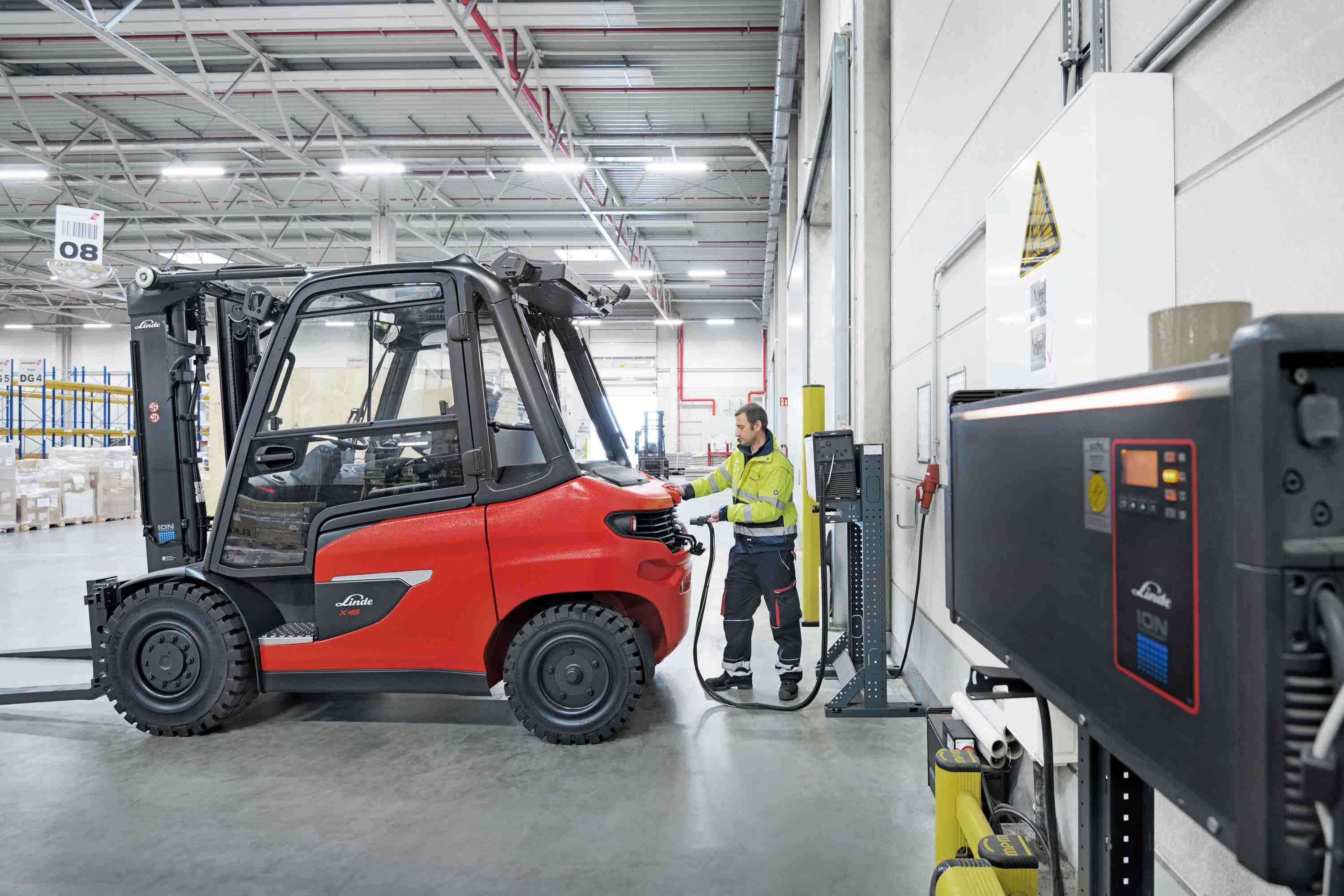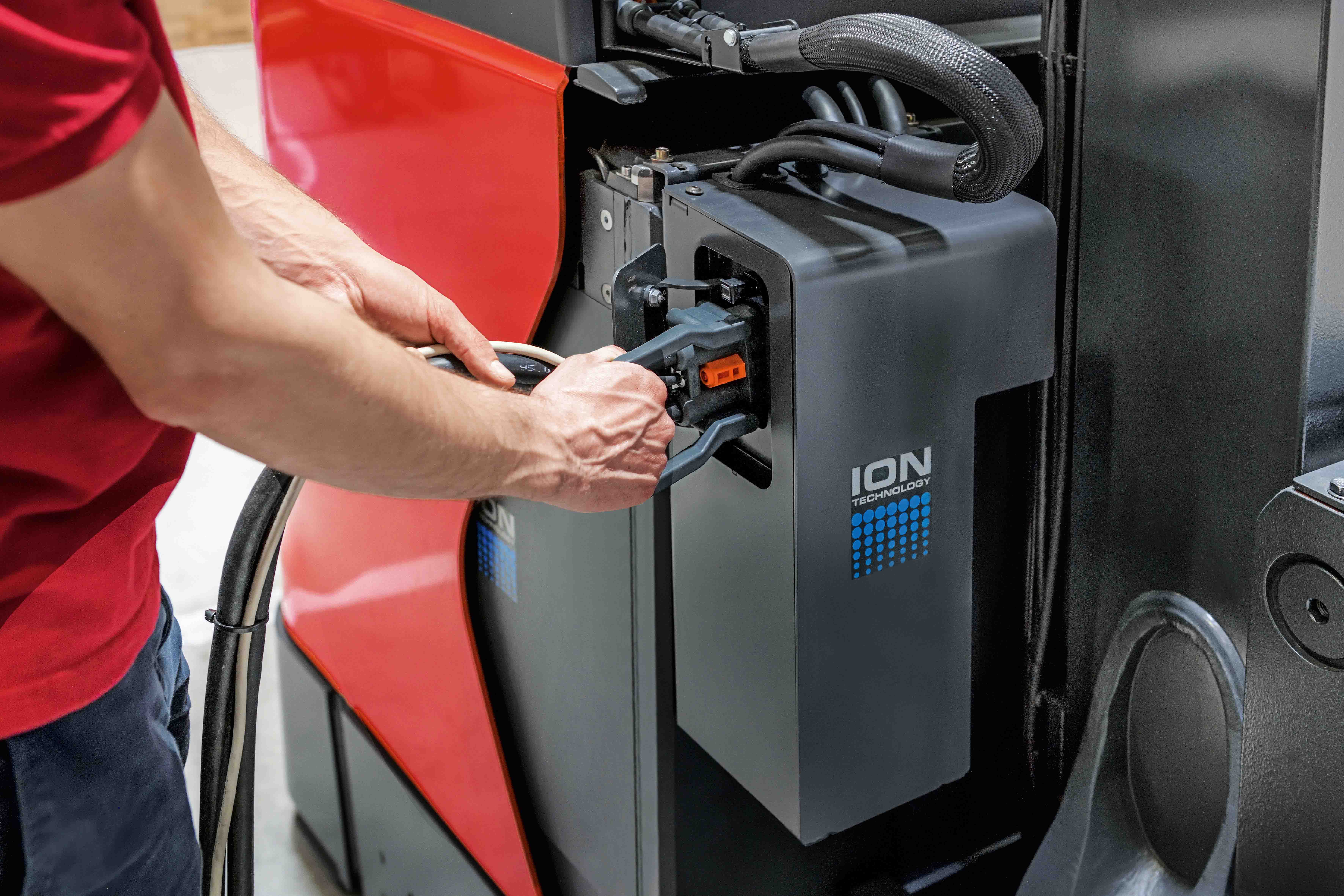Lithium ION Batteries



Rising cost pressures, strict deadlines, and unpredictable spikes in orders are altering the demands placed on warehouse machinery and forklifts. There's a need for material handling equipment to maintain constant availability while prioritizing safety and cost efficiency. This requirement puts energy systems under scrutiny.
An obstacle in electromobility involves ensuring that electric forklifts match the availability of their internal combustion engine counterparts, like gas and diesel trucks. This is where Lithium-ION (Li-ION) technology becomes crucial. In comparison to lead-acid battery technology, Li-ION batteries offer a plethora of benefits for electric forklifts and warehouse trucks, including:
Faster Recharging: Lithium-ion batteries offer rapid recharging capabilities, eliminating the need for time-consuming battery changes.
Enhanced Energy Output: With higher energy density and superior overall system efficiency, lithium-ion batteries deliver up to 30% more energy.
Consistent Performance: Forklift operators utilizing lithium-ion battery-powered trucks experience uninterrupted performance even as the battery approaches low charge levels.
Simplicity and Safety: Maintenance-free and easy to clean, lithium-ion batteries eliminate the risk of hazardous battery gases and acids leaking.

The Optimal Solution for Every Scenario.Whether used indoors or outdoors, in demanding multi-shift schedules or within cold storage environments, Li-ION batteries excel across all applications. Li-ION batteries offer emission-free operation, unlike lead-acid batteries, making them ideal for sensitive applications such as pharmaceuticals or food handling. Being environmentally friendly, Li-ION batteries provide a powerful alternative to internal combustion forklifts, offering equivalent performance without the emissions. |
Linde's Lithium-ION batteries for forklift trucks and warehouse equipment enhance operational efficiency and handling, boosting vehicle availability while making operations more economical, safer, and environmentally sustainable.
Lithium-ion batteries enhance fleet efficiency during operation, leveraging technological advancements in the energy system to deliver numerous time and cost-saving benefits.
Read our Blog: Unravelling The 10 Common Myths About Lithium-ION Batteries
Learn more about Linde Li-ION Batteries in the downloads below.
HIGH SPEED CHARGING
Linde Li-ION batteries can achieve a full charge cycle within one hour.
Depending on the intensity of the operation, a quick recharge during a lunch break can have the vehicle ready to go for several hours.
SHORT INTERIM CHARGING PREFERRED
With lead-acid batteries, it is recommended to only start full charging cycles in order to protect them — Li-ION batteries don’t require this.
Extremely short interim charging of just a few minutes is recommended for Li-ION batteries. With an ideal state of charge at 20-80% of the total capacity — this flexibility significantly increases the availability of the vehicle.
CUSTOMISED PROTECTION AGAINST DEEP DISCHARGE
Linde's CAN bus technology allows settings to be customised in order to protect against deep discharge.
When approaching the minimum residual capacity, the battery management for Li-ION batteries reduces the performance of drive and lift functions.
This value can be set according to the customer's individual needs, in order to strike the right balance between truck availability and battery protection.
DIFFERENT CAPACITIES FOR DIFFERENT APPLICATIONS
There are two different capacities for each type of Li-ION battery, this enables businesses to define their vehicles' energy supply according to the individual operating intensity. For eg, it’s possible to use a forklift with a large Li-ION battery in a three-shift operation without needing to stop to charge it during any of those shifts.
NO HAZARDOUS GASES
Hydrogen produced by lead-acid batteries can turn into dangerous oxyhydrogen gas — Li-ION batteries do not contain hydrogen, eliminating this risk.
Battery replacement and maintenance is not required for Li-ION batteries, meaning workers are no longer exposed to any risk of injury.
CRASH-TESTED COMPARTMENT
To ensure that Li-ION batteries are protected, even in extreme situations, we incase them in a robust compartment and subject it to crash tests of the maximum load.
The strong 25mm thick steel housing of the compartment prevents the penetration of a fork — even at high speed.
MULTI-LEVEL SAFETY SYSTEM
This system applies at cell, module and battery level.
Battery management ensures optimum battery usage by constantly monitoring and coordinating vehicle functions, charging processes and the battery system.
This prevents damage caused by overpressure, overheating, over-charging or deep discharge.
The vehicle and battery are CE-compliant, plus the entire system – consisting of vehicle, battery and charger – carries the CE seal of approval for tested safety.
COMPLETELY EMISSION-FREE
Linde's Li-ION batteries meet all sustainability requirements, making their operation completely emission-free.
CONSUMES LESS ENERGY
The production of Li-ION batteries produces fewer pollutants than that of conventional lead-acid batteries.
The use of Li-ION powered forklifts and warehouse equipment makes any application significantly more energy-efficient, resulting in the same overall output being achieved, using less energy.
Li-ION batteries have a longer life cycle than lead-acid batteries, meaning they don’t have to be replaced as often, resulting in a higher conservation of environmental resources.